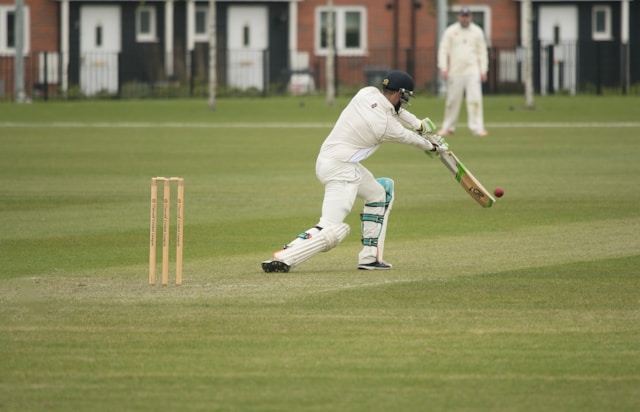Cricket, with its rich history and global appeal, has seen many legendary captains who have led their teams with distinction. These leaders not only achieved personal success but also inspired their teams to reach new heights. This article highlights some of the best captains in cricket history, examining their achievements and leadership qualities. For more insights into cricket and other sports, visit 4rabet.
Sir Don Bradman (Australia)
Sir Don Bradman, often regarded as the greatest batsman of all time, also had a distinguished career as a captain. Under his leadership, Australia dominated international cricket in the late 1930s and 1940s. Bradman’s captaincy was marked by his tactical acumen and his ability to inspire his team with his performances. He led Australia in 24 Test matches, winning 15 and losing only three. His legacy as a captain is intertwined with his legendary status as a batsman.
Clive Lloyd (West Indies)
Clive Lloyd is one of the most successful captains in cricket history. He led the West Indies during their golden era in the 1970s and 1980s, turning them into a formidable force in world cricket. Lloyd captained the West Indies in 74 Test matches, winning 36 and losing only 12. His leadership was instrumental in the West Indies winning the first two Cricket World Cups in 1975 and 1979. Lloyd’s ability to manage a team of diverse and talented players made him an exceptional leader.
Imran Khan (Pakistan)
Imran Khan is celebrated as one of Pakistan’s greatest captains. His crowning achievement was leading Pakistan to victory in the 1992 Cricket World Cup. Imran’s leadership was characterized by his charisma, determination, and ability to inspire his teammates. He captained Pakistan in 48 Test matches, winning 14 and drawing 26. Imran’s influence extended beyond the field, as he played a significant role in promoting cricket in Pakistan and mentoring future generations of cricketers.
Steve Waugh (Australia)
Steve Waugh is widely regarded as one of the toughest and most successful captains in cricket history. Under his leadership, Australia became the dominant force in world cricket, winning the 1999 Cricket World Cup and achieving a record 16 consecutive Test victories. Waugh’s captaincy was marked by his resilience, mental toughness, and ability to lead by example. He captained Australia in 57 Test matches, winning 41 and losing only nine.
Mahendra Singh Dhoni (India)
Mahendra Singh Dhoni, also known as “Captain Cool,” is one of the most successful captains in the history of Indian cricket. Dhoni led India to victories in the 2007 ICC T20 World Cup, the 2011 ICC Cricket World Cup, and the 2013 ICC Champions Trophy. His calm demeanor under pressure and astute decision-making earned him a reputation as one of the best finishers in the game. Dhoni captained India in 60 Test matches, winning 27, and in 200 ODIs, winning 110. His leadership transformed India into a formidable team across all formats.
Ricky Ponting (Australia)
Ricky Ponting is one of the most successful captains in the history of cricket. He led Australia to two consecutive Cricket World Cup victories in 2003 and 2007 and is considered one of the best batsmen of his generation. Ponting’s aggressive and uncompromising style of leadership helped Australia dominate world cricket during his tenure. He captained Australia in 77 Test matches, winning 48, and in 230 ODIs, winning 165. Ponting’s ability to lead from the front and his tactical acumen made him an outstanding captain.
Graeme Smith (South Africa)
Graeme Smith is renowned for his exceptional leadership and longevity as the captain of South Africa. Smith was appointed captain at the age of 22, making him one of the youngest captains in cricket history. He led South Africa in 109 Test matches, winning 53, and in 150 ODIs, winning 92. Smith’s leadership was instrumental in South Africa becoming the number one Test team in the world. His ability to lead by example and his resilience in the face of challenges made him a highly respected captain.
Sourav Ganguly (India)
Sourav Ganguly, also known as the “Prince of Kolkata,” played a pivotal role in transforming Indian cricket. Under his leadership, India became a more aggressive and competitive team, particularly in overseas conditions. Ganguly captained India in 49 Test matches, winning 21, and in 146 ODIs, winning 76. His leadership style, which combined aggression with strategic acumen, laid the foundation for India’s future successes. Ganguly’s tenure as captain is often credited with instilling a sense of self-belief and fighting spirit in the Indian team.
Arjuna Ranatunga (Sri Lanka)
Arjuna Ranatunga is celebrated for leading Sri Lanka to their first-ever Cricket World Cup victory in 1996. His leadership was characterized by his ability to inspire and unite his team. Ranatunga captained Sri Lanka in 56 Test matches, winning 12, and in 193 ODIs, winning 89. His tactical acumen and ability to lead by example were crucial in transforming Sri Lanka into a competitive team on the international stage.
Conclusion
These captains have left an indelible mark on the history of cricket through their leadership, strategic brilliance, and ability to inspire their teams. Their contributions have not only led to significant victories but have also shaped the way the game is played and perceived around the world. For more insights and updates on cricket, visit 4rabet. The legacy of these captains continues to influence and inspire new generations of cricketers.
Photo by michael weir on Unsplash (Free for commercial use)
Image Published on May 18, 2020




